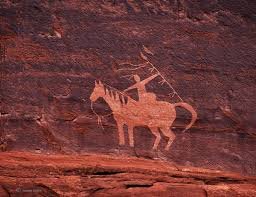
Let’s stay in touch.
ONAQUE HORSES
The roundup of the beloved Onaqui wild horses began on Tuesday, July 14. This herd is believed to harbor descendants of horses that once worked the fabled Pony Express, whose historic trail passes though their range in Utah.
The roundup of the beloved Onaqui wild horses began on Tuesday, July 14. This herd is believed to harbor descendants of horses that once worked the fabled Pony Express, whose historic trail passes though their range in Utah.
The BLM rounded up 435 horses despite heavy public opposition from people across the United States. They’ve been removed to off-range coral facilities, to be sorted for return to the range or adoption. Of course adoption is a euphemism for slaughter as many of these horses end up in slaughterhouses in Mexico and Canada. The BLM plans to return about 100 horses, an appropriate management level which will allow commercial livestock (cattle) to have 80% of the range.
These are public lands and and the wild horses living there are held in public trust for future generations. These horses are sacred to the American people. What do you think?
FROM WASHINGTON POST OP/ED: "Humans and horses share a unique bond that can be traced back several million years. The suffering we are about to witness — and by our passivity, endorse — is a betrayal of something deep and ancient and profound. The wailing of tortured horses may be beyond earshot, but the fact of it should rattle our bones. No more."
No Culture. No Future.
Why should we preserve and protect wild horses in the American West? I get asked that question all the time. For years I went with the obvious answer - because the horses are beautiful and free and they inspire our higher angels. While I rambled on the softies nodded along and the skeptics rolled their eyes but didn’t disagree.
Why should we preserve and protect wild horses in the American West? I get asked that question all the time. For years I went with the obvious answer - because the horses are beautiful and free and they inspire our higher angels. While I rambled on the softies nodded along and the skeptics rolled their eyes but didn’t disagree.
And then came Global Warming. Our Federal herd management people became the merchants of post-truth to protect very wealthy individuals and corporations. Oh, you’ve heard it all. There’s not enough water for the horses. There’s no place for wild horses on the range. They argued wild horses and burros must be rounded up to save them from dying of starvation or thirst. To prevent destruction to the environment and protect the ecosystem. Because ranchers depend upon livestock grazing for their livelihood and wild horses and burros are creating an undue hardship on their operations.
At the end of the day it comes down to our own survival and the preservation of American culture in away that affirms our basic human values. While working with Navajo Wild Horse advocates on my documentary, A Sacred Horse, I became quite convince that the survival of the wild horse is tied to the survival of humanity. How they do is how we do. What do you think?
“This struggle between maintaining cultural traditions and being assimilated into contemporary culture is being played out on the range. Indigenous peoples see this clash as a microcosm of a much larger issue. We believe the inhumane treatment of the horse as a violation against Mother Earth and her natural cycles. This issue of horses is tied to our way of life as Indigenous Peoples so we realize that it’s not only the horses that are threatened but it is also our way of life that is threatened. It is our understanding that the health and future of the horses are intricately tied to our own. That is why we are fighting so hard. We are fighting for our own future generations.” — Navajo Elder

